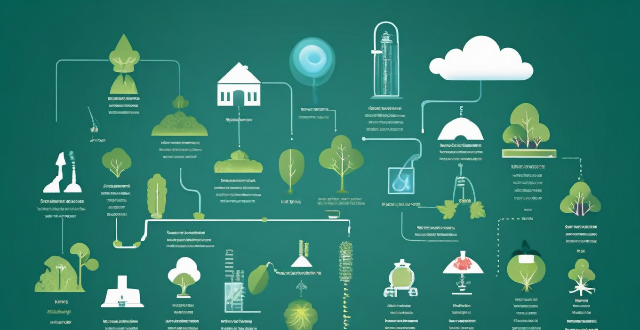The text discusses the significant impact of greenhouse gas emissions on human health, highlighting four main areas: air quality, climate change, food security, and waterborne diseases. It provides examples of health problems caused by each of these factors, such as respiratory issues from poor air quality, heat-related illnesses from climate change, malnutrition from food insecurity, and diseases like cholera from waterborne pathogens. The article emphasizes the importance of reducing greenhouse gas emissions to protect public health.

How do Greenhouse Gas Emissions Affect Human Health?
Greenhouse gas emissions have a significant impact on human health. These emissions contribute to climate change, which in turn affects the environment and living conditions for humans. Here are some ways greenhouse gas emissions affect human health:
1. Air Quality
One of the most direct effects of greenhouse gas emissions on human health is through air quality. Burning fossil fuels releases pollutants into the air, including particulate matter, nitrogen oxides, and sulfur dioxide. These pollutants can cause respiratory problems, heart disease, and other health issues.
Examples of Health Problems Caused by Poor Air Quality:
- Asthma attacks
- Chronic obstructive pulmonary disease (COPD)
- Lung cancer
- Cardiovascular disease
- Premature death
2. Climate Change
Greenhouse gas emissions also contribute to climate change, which has far-reaching consequences for human health. Rising temperatures can lead to heat stress, heat stroke, and other heat-related illnesses. Extreme weather events like hurricanes, floods, and wildfires can cause physical injuries, displacement, and mental health issues.
Examples of Health Problems Caused by Climate Change:
- Heat-related illnesses (e.g., heat exhaustion, heat stroke)
- Injuries from extreme weather events (e.g., hurricanes, floods)
- Mental health issues (e.g., anxiety, depression) related to displacement and loss of property
3. Food Security
Climate change affects food production and security, which in turn affects human health. Changes in temperature and precipitation patterns can lead to crop failures, reduced nutrient content in crops, and increased pest and disease pressures. This can result in malnutrition and food shortages, particularly in vulnerable populations.
Examples of Health Problems Caused by Food Insecurity:
- Malnutrition (e.g., stunting, wasting)
- Increased susceptibility to infectious diseases due to weakened immune systems
- Poor cognitive development in children due to lack of essential nutrients
4. Waterborne Diseases
Climate change can also affect water resources, leading to changes in water availability and quality. This can increase the risk of waterborne diseases like cholera, dysentery, and typhoid fever. Warmer temperatures can also facilitate the spread of disease vectors like mosquitoes and ticks, increasing the risk of diseases like malaria, Lyme disease, and West Nile virus.
Examples of Health Problems Caused by Waterborne Diseases:
- Diarrheal diseases (e.g., cholera, dysentery)
- Mosquito-borne diseases (e.g., malaria, dengue fever)
- Tick-borne diseases (e.g., Lyme disease, Rocky Mountain spotted fever)
In conclusion, greenhouse gas emissions have a significant impact on human health through various pathways, including air quality, climate change, food security, and waterborne diseases. To protect public health, it is essential to reduce greenhouse gas emissions and mitigate the effects of climate change.